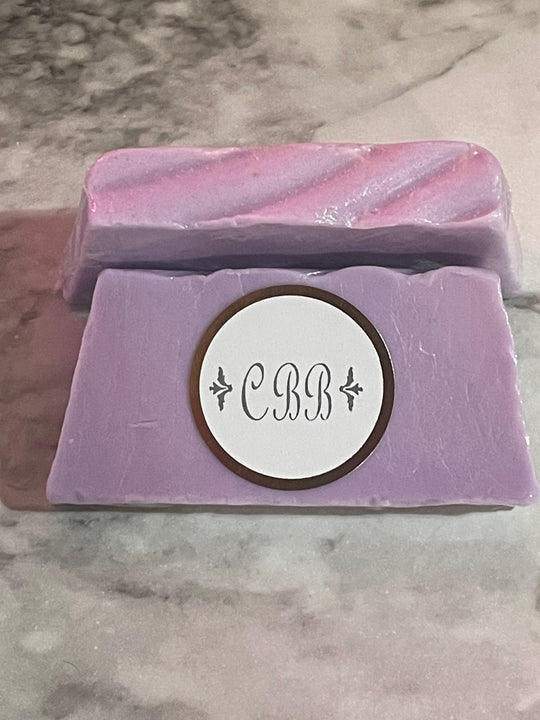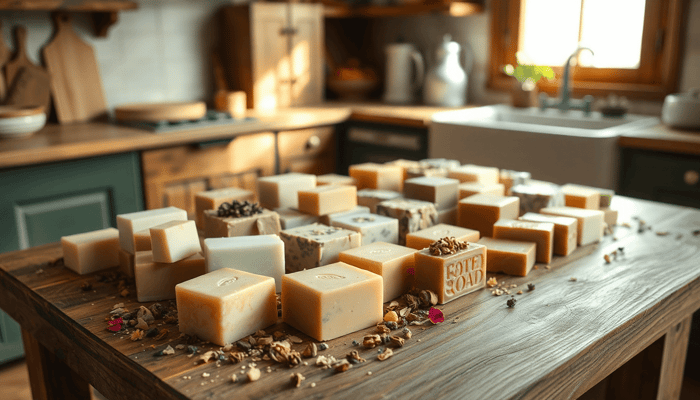Table of Contents
The History of Soap Making
Soap has been an integral part of human civilization for thousands of years, evolving from simple cleansing agents to the diverse and innovative products we know today. The history of soap making is a fascinating journey that spans ancient civilizations, technological advancements, and the ever-changing demands of modern consumers.
The Origins of Soap
The origins of soap can be traced back to ancient Mesopotamia, where the first recorded soap-like substances were discovered. These early soap-like materials were made from animal fats and ashes, and were used primarily for cleaning and medicinal purposes. Similar soap-making techniques were also found in ancient Egypt, where soap was used for both personal hygiene and religious rituals.
As civilizations progressed, the art of soap making continued to evolve. The ancient Greeks and Romans made significant advancements in soap production, using a variety of plant-based oils and animal fats to create more sophisticated cleansing agents. These early soap makers recognized the importance of using specific ingredients to create soaps with different properties, such as those designed for washing clothes or for personal grooming.
The Middle Ages and the Rise of Specialized Soaps
During the Middle Ages, soap making became more widespread, with specialized soap makers emerging in various regions. In Europe, the production of soap was often controlled by guilds, who closely guarded their recipes and techniques. These soap makers experimented with a wide range of ingredients, including olive oil, animal fats, and even the ash from certain plants.
The demand for specialized soaps grew during this period, with different types of soap being produced for specific purposes. For example, Castile soap, made from olive oil, became popular for its gentle cleansing properties, while Marseille soap, made from a combination of olive oil and sodium hydroxide, was prized for its ability to remove stubborn stains.
The Industrial Revolution and the Democratization of Soap
The Industrial Revolution of the 18th and 19th centuries brought about a significant transformation in the soap-making industry. The development of new technologies, such as the use of steam power and the introduction of synthetic detergents, allowed for the mass production of soap on an unprecedented scale.
This period saw the emergence of several iconic soap brands, such as Ivory, Lever Brothers (now Unilever), and Procter & Gamble, which revolutionized the soap industry by making high-quality, affordable soap available to the masses. These companies not only improved the manufacturing process but also invested heavily in marketing and branding, helping to shape the public's perception of soap as a necessary and desirable household item.
The Modern Era of Soap Making
In the 20th and 21st centuries, the soap-making industry has continued to evolve, driven by changing consumer preferences, environmental concerns, and advancements in scientific research. The rise of the natural and organic movement has led to a renewed interest in traditional soap-making techniques, with many consumers seeking out handcrafted, artisanal soaps made with natural ingredients.
Soap makers have also responded to the growing demand for specialized and personalized soap products, creating a wide range of formulations tailored to specific skin types, scent preferences, and even specific health and wellness needs. From exfoliating bar soaps to moisturizing body washes, the modern soap industry offers a diverse array of options to meet the diverse needs and preferences of consumers.
The Future of Soap Making
As we look to the future, the soap-making industry continues to evolve, driven by technological advancements, environmental concerns, and changing consumer preferences. Innovations in sustainable and eco-friendly soap production, the use of renewable and biodegradable ingredients, and the integration of cutting-edge scientific research are all shaping the direction of the industry.
Moreover, the growing emphasis on personalization and customization is likely to continue, with soap makers finding new ways to cater to the unique needs and desires of their customers. From custom-blended scents to personalized packaging, the soap industry is poised to become even more responsive to the diverse and evolving needs of modern consumers.
As we delve deeper into the rich history of soap making, it becomes clear that this humble product has played a significant role in shaping human civilization. From its ancient origins to its modern-day incarnations, the story of soap is a testament to the ingenuity, creativity, and adaptability of human beings. As we continue to explore and innovate in the world of soap making, we can expect to see even more exciting developments in the years to come.
Rêve de menthe poivrée – Savon en barre

$12.00
Barre de savon à la menthe poivrée Dream Savon artisanal fabriqué au Nouveau-Brunswick, Canada. Savon naturel au beurre de karité. Couleur: Violet Parfum : Menthe poivrée Caractéristiques et avantages du produit : Ingrédients 100 % naturels : Fabriqué avec des huiles… read more




